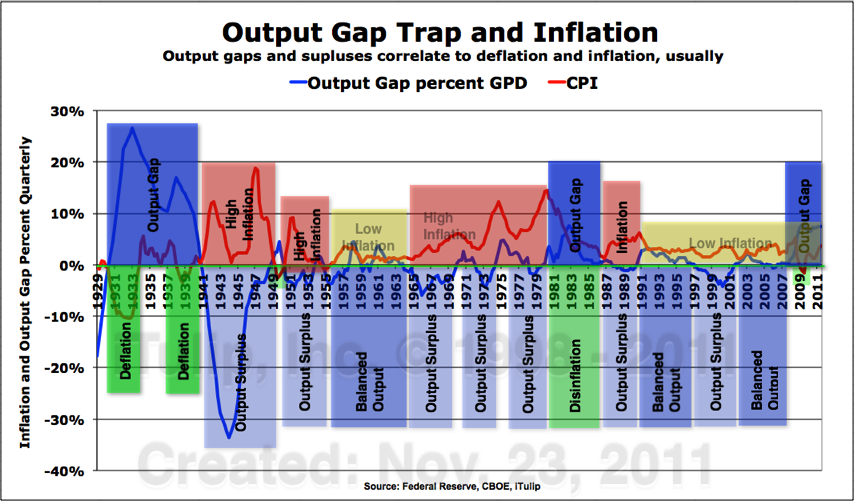Re: Election as Forcing Function - Part I: On Track for a Bond Market Panic - Eric Janszen
I am less impressed with the concept of "precision" in language. As I understand it, the output gap is revealed in recession, but is developed in the preceding boom. When the tide goes out, we see who was swimming naked.
For US treasuries to have been sold to foreigners after 2001 buyers were required, not just salesmen. Foreign CB's largely Japan, and China, after it's accession to the WTO in 2001, accomplished this, a mercantilist act to maintain export market penetration to the gluttonous American "consumer", sad Frankenstein creation that we have become.
Bankers (and other malefactors}, having "bought " congress, executive branch, and some parts of the judiciary, saw the opportunity to perpetrate massive fraud, and get away with it. "The big lie" concept. Academia supplied the narrative justification.
Once the inevitable collapse started, the Bank's best friend, tne Fed, bailed them out, preventing, the cleansing (Just like Japan, inc.), and precluding any possibility of productive recovery.
With respect, EJ, what you measure and describe as recovery, is, to other eyes, no recovery at all, but rather, sound and fury, signifying nothing.
Back to the issue of the treasury market, or any market at all. What is to stop the Fed from buying all the market? Nothing. It will fail, but it has already failed to my tired and ignorant eyes.
I am less impressed with the concept of "precision" in language. As I understand it, the output gap is revealed in recession, but is developed in the preceding boom. When the tide goes out, we see who was swimming naked.
For US treasuries to have been sold to foreigners after 2001 buyers were required, not just salesmen. Foreign CB's largely Japan, and China, after it's accession to the WTO in 2001, accomplished this, a mercantilist act to maintain export market penetration to the gluttonous American "consumer", sad Frankenstein creation that we have become.
Bankers (and other malefactors}, having "bought " congress, executive branch, and some parts of the judiciary, saw the opportunity to perpetrate massive fraud, and get away with it. "The big lie" concept. Academia supplied the narrative justification.
Once the inevitable collapse started, the Bank's best friend, tne Fed, bailed them out, preventing, the cleansing (Just like Japan, inc.), and precluding any possibility of productive recovery.
With respect, EJ, what you measure and describe as recovery, is, to other eyes, no recovery at all, but rather, sound and fury, signifying nothing.
Back to the issue of the treasury market, or any market at all. What is to stop the Fed from buying all the market? Nothing. It will fail, but it has already failed to my tired and ignorant eyes.


Comment